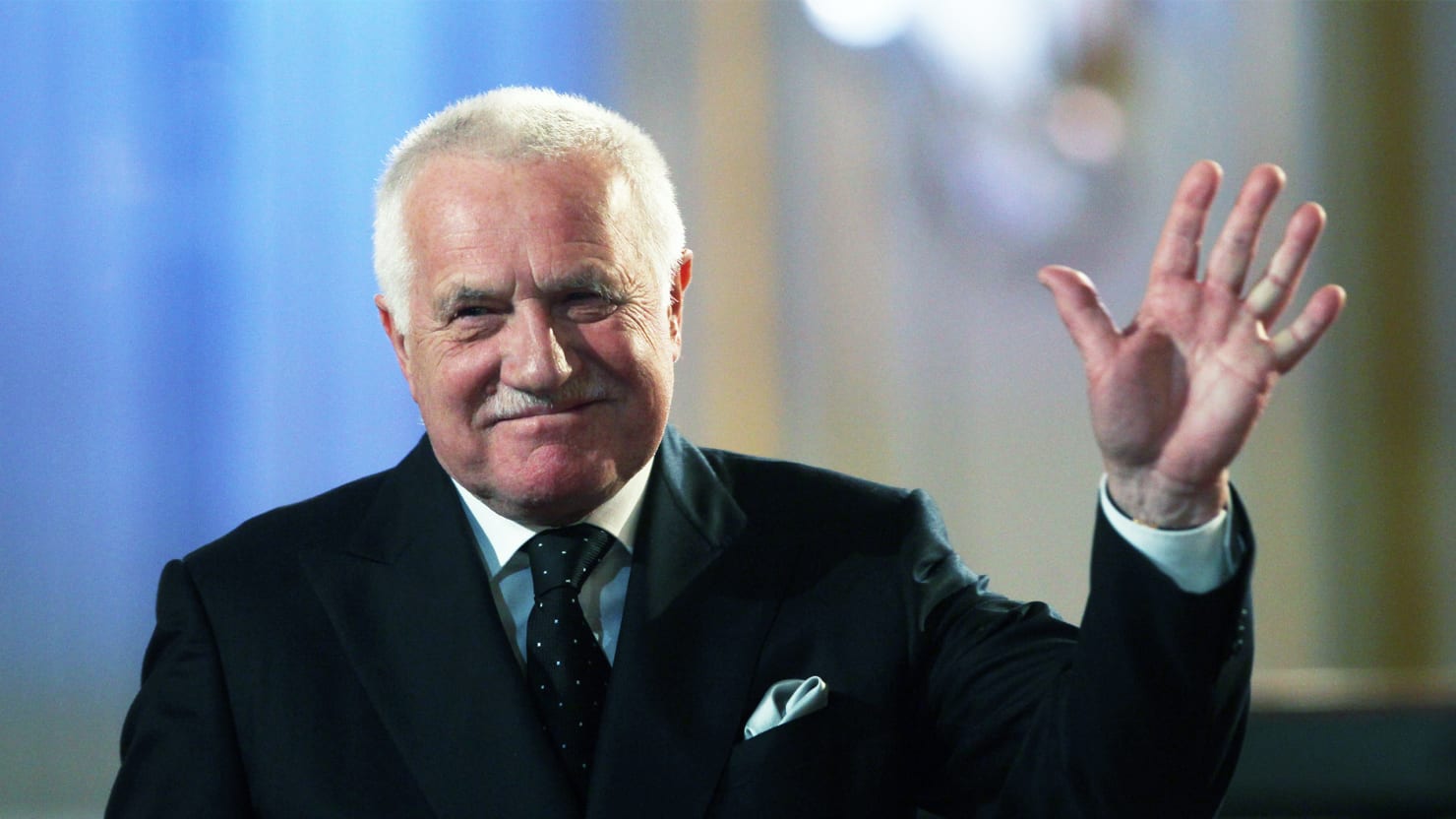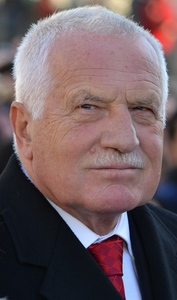Europe All Inclusive, a book by former Czech President Václav Klaus, co-authored by the Arab-speaking economist Jiří Weigl, recently published by Hungary's Századvég School of Politics Foundation, has already been translated into six languages. The Századvég School of Politics Foundation is connected to the think tank Századvég, which, in turn, is close to the FIDESZ party led by Hungarian Prime Minister Viktor Orbán. In the book, the authors write:
"What we see today is a similarly fundamental challenge to the future of Europe... and especially its 'integrated' part, is riddled with hypocrisy, pseudo-humanism and other dubious concepts. [When] the most dangerous of them are the currently fashionable, and ultimately suicidal, ideologies of multiculturalism and human-rightism...These ideologies promote the notion that migration is a human right, and that the right to migrate leads to further rights and entitlements including social welfare hand-outs for migrants... Europe is weakened by the leftist utopia of trying to transform a continent that was once proud of its past into an inefficient solidaristic state, turning its inhabitants from citizens into dependent clients."
 In February 2018, Former Czech President Václav Klaus (left) delivered a copy of the Hungarian translation of his book, Europe All Inclusive, to Viktor Orbán (right), the Prime Minister of Hungary. (Image source: Václav Klaus Institute) |
The following are excerpts of a speech, "Is Our Membership in the EU a Real Blessing?", delivered by Václav Klaus at the Corvinus University of Budapest on February 22, 2018:
I came to Budapest to participate in the launching of the book about the recent mass migration to Europe. Its formal launching took place yesterday in the Hungarian Academy of Sciences.
Our ambition in writing the book was to contribute to the refutation of the false and misleading interpretations of the current European migration crisis. They have been promoted and propagated by the European political and intellectual elites with their progressivist, multicultural, politically correct views and attitudes. Their thinking is based on the untenable assumption that the mass migration is a positive social phenomenon. We strongly disagree. It is not a positive phenomenon, it destabilizes Europe, it endangers the peaceful and quiet developments in individual European countries.
History teaches us that any mass migration creates considerable cultural, social and political conflicts, shocks and tensions. Its costs have always been much higher than its benefits. We see it in Europe these days. The costs connected with it are high and visible and – to be frank – we have not been able to find any benefits from of it. It is evident that Europe does not need any mass migration.
We are aware of the specifics regarding the current mass migration, of the Hungarian stance, which is the result of the courageous -- and in Europe singular and isolated -- position of Prime Minister Orbán. We can assure you that his views are greatly supported in the Czech Republic. I am glad to say that my own views are very similar to Prime Minister Orbán's views.
There are plenty of arguments suggesting that the contemporary migration crisis is connected with the post-democratic character of the EU: it is a by-product of the already long-existing European crisis; systemic errors and misconceptions of European policies; built-in defects of EU institutional arrangements, and the ideological confusions and prejudices of European multicultural political elites.
My criticism is based on the fact that we are – due to our EU membership – once again masterminded from abroad and that our sovereignty is again considerably constrained.
The substance of my polemics with the EU arrangements is based both on the criticism of the negative effects of the ambitions to centralize economically and excessively unify the European continent. It is also based on those who underestimate the negative consequences of undemocratically suppressing nation-states in favor of a pan-European governance.
In the communist era, our dream was to be free citizens, not just inhabitants of our non-free states. Regarding mass migration, the issue of citizenship has become crucial again. Citizenship reflects that one belongs to a particular political community. I strongly disagreed with a well-known and often quoted statement by President Obama, when he famously announced that he is "a citizen of the world". The European political elites similarly keep saying that they are citizens of Europe. Yet, it is impossible to be a citizen of Europe. Europe is not a political community. One can only be an inhabitant of Europe.
I want to live in a Europe with less of the EU and with more of the nation-states. The currently prevailing EU ideology (I call it Europeism) systematically undermines the traditional, historically proven building blocks of the European society: the nation state, the family, the man.
I am very much in favor of the increased openness of the European society. It was attained in the first phase of the European integration process (in the era of the EEC and the EC). I am, however, very critical of the increased bureaucratic centralization, of the permanently growing regulations that suppress human activity, and of the frustrating de-democratization that is connected with the second phase of the European integration process (with the era of the EU), with the European unification. To sum it up, our membership in such an entity is a very mixed blessing. We should have the courage to say it loudly.
Václav Klaus is the former president and former prime minister of the Czech Republic and author more than 40 books, including: Europe All Inclusive: A Brief Guide to Understanding the Current Migration Crisis" (2017), Blue Planet in Green Shackles: What Is Endangered: Climate or Freedom? (2007) andRenaissance: The Rebirth of Liberty in the Heart of Europe (1997). The excerpts were shortened by Josef Zbořil and are reprinted here with the kind permission of the author.




















